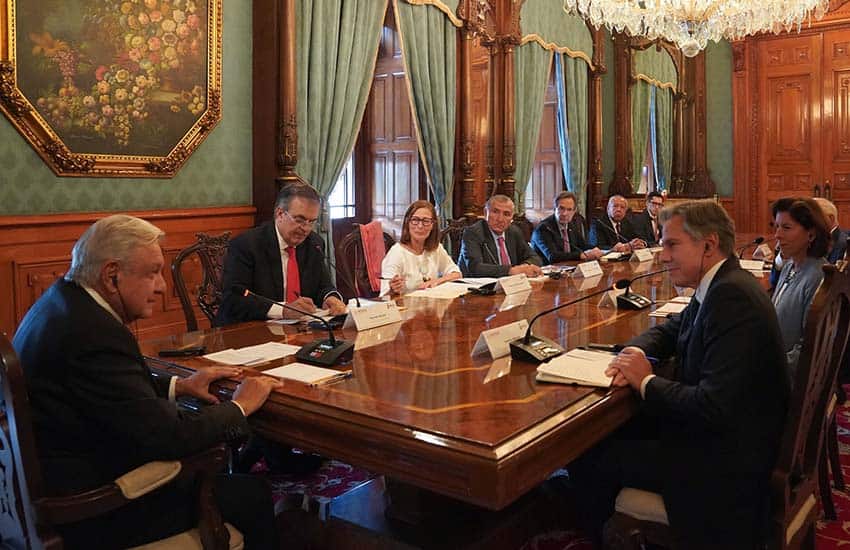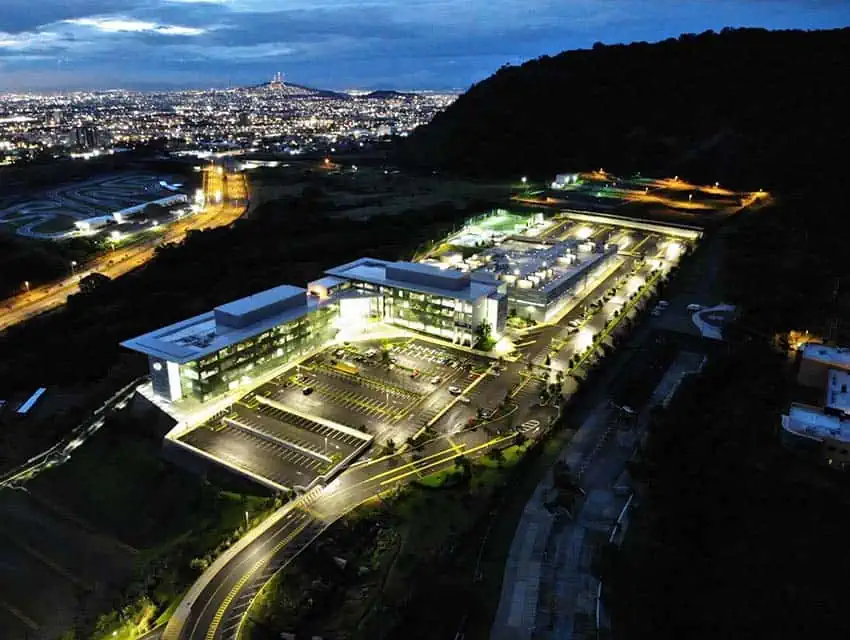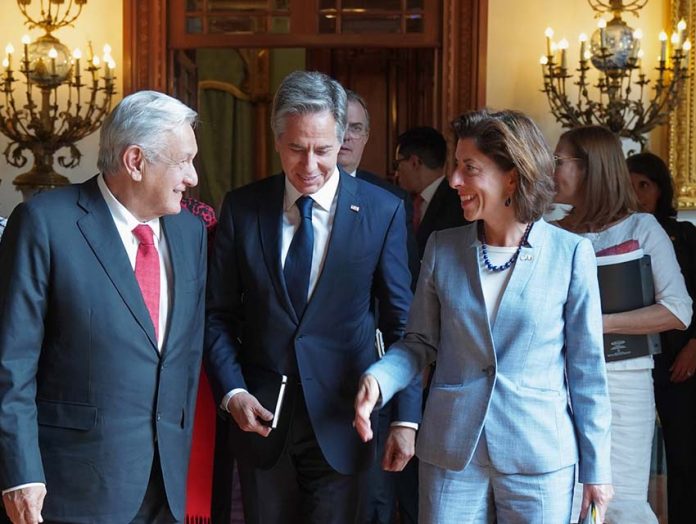The United States has invited Mexico to take advantage of massive U.S. investment in the semiconductor industry, Foreign Minister Marcelo Ebrard said Monday after talks between high-ranking officials from the two countries.
United States Secretary of State Antony Blinken and Secretary of Commerce Gina Raimondo met with Mexican officials including President López Obrador, Ebrard and Economy Minister Tatiana Clouthier in Mexico City for the U.S-Mexico High-Level Economic Dialogue (HLED).
The foreign minister told reporters that the U.S. officials “came to invite us to boost [the production of] semiconductors,” electrical components also known as chips.
“They already authorized an approximately US$50 billion [semiconductors] program and they’re inviting us to participate,” Ebrard said.

“… What we have is an invitation that is received perhaps once in a lifetime, so we’re going to accept it, and thank you very much for thinking of Mexico,” he told the U.S. officials at a press conference.
The U.S. Department of Commerce released its strategy last week, outlining how it would implement US $50 billion from the CHIPS and Science Act of 2022, an executive order that U.S. President Joe Biden signed in August.
A statement from the department said that the four primary goals of the act were to establish and expand domestic production of leading-edge semiconductors in the U.S.; build a sufficient and stable supply of mature node semiconductors; invest in research and development to ensure that next-generation semiconductor technology is developed and produced in the U.S.; and create tens of thousands of well-paying manufacturing jobs and more than 100,000 construction jobs.
While those objectives are for the United States, the Mexican and U.S. governments said in a joint statement following Monday’s HLED that “the passage of the CHIPS and Science Act … provides unprecedented opportunities to enhance our already dynamic supply chains.”
Secretary Raimondo told a press conference in Mexico City that “while the law’s funding will supercharge the U.S. semiconductor industry, it will also create significant opportunities for Mexico.”
“It’s a chance for our two countries to work together to build a robust semiconductor ecosystem on both sides of the border,” she said.
For his part, Blinken said that the CHIPS and Science Act will “provide funds to develop resilient semiconductor supply chains in North America.”
“Major elements of the semiconductor supply chains are already well-established in Mexico, with U.S.-based companies like Intel and Skyworks conducting research and development, design, assembly and test manufacturing in parts of Mexico,” he added. “The CHIPS Act will incentivize more of this type of work. It will ensure that we can build these and other components that we need for the 21st century right here in North America.”

Blinken also said that the United States and Mexico are collaborating to “boost competitiveness, to create good-paying jobs [and] to accelerate North America’s transition to clean energy.”
Ebrard said that López Obrador told the U.S. secretary of state and secretary of commerce about his plan to make Sonora a leader in the production of lithium, solar energy and electric vehicles. There are large potential reserves of lithium – a key component of electric vehicle batteries – in the northern border state.
Congress has already nationalized lithium, passing a reform to the federal Mining Law that declares that the metal “is an asset of the nation and its exploration, exploitation, extraction and use is reserved in favor of the people of Mexico.”
Blinken noted that the U.S. Inflation Reduction Act “provides among other things tax incentives for electric vehicles and battery components manufactured in North America.”
“It’s a smart investment in a shared future – a way to create more jobs for our people, combat the global climate crisis, strengthen our energy security. And this is something we discussed with President López Obrador today,” he said.
Ebrard said that the opportunities stemming from the relationship with the United States could allow the Mexican economy to grow at double the current rate, enabling authorities to “reduce poverty much more quickly” and build more infrastructure.
“What is being built today from these initiatives of President Biden and López is … certainty,” he added.
Asia currently makes far more semiconductors and lithium batteries than North America, but the U.S. investment and Mexico’s efforts to exploit lithium deposits could help this region catch up.
According to a New York Times report, the CHIPS act specifies that companies that accept funding cannot make new, high-tech investments in China or other “countries of concern” for at least a decade unless they are producing lower-tech “legacy chips” destined to serve only the local market.
The joint Mexico-U.S. statement said that the CHIPS and Science Act and the Inflation Reduction Act “will increase investment into the North American manufacturing sector, lower energy costs for families and businesses, bolster our supply chains and shore up our collective energy security.”
“It will also create jobs in both countries and position North America as a leader in clean energy,” it added.
With reports from El Financiero, Milenio, La Jornada, Aristegui Noticias, AP and The New York Times
